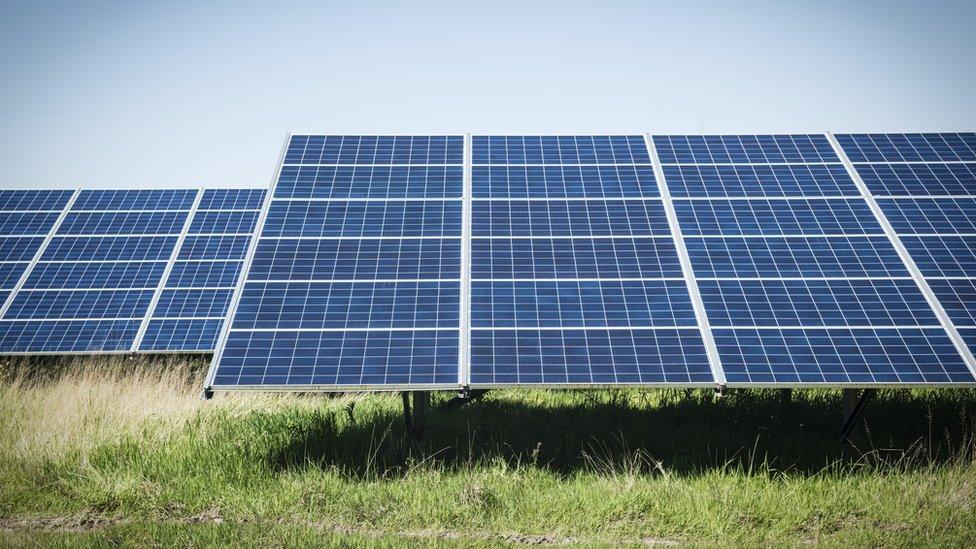Massive solar farm plans near Exeter get go ahead
- Published
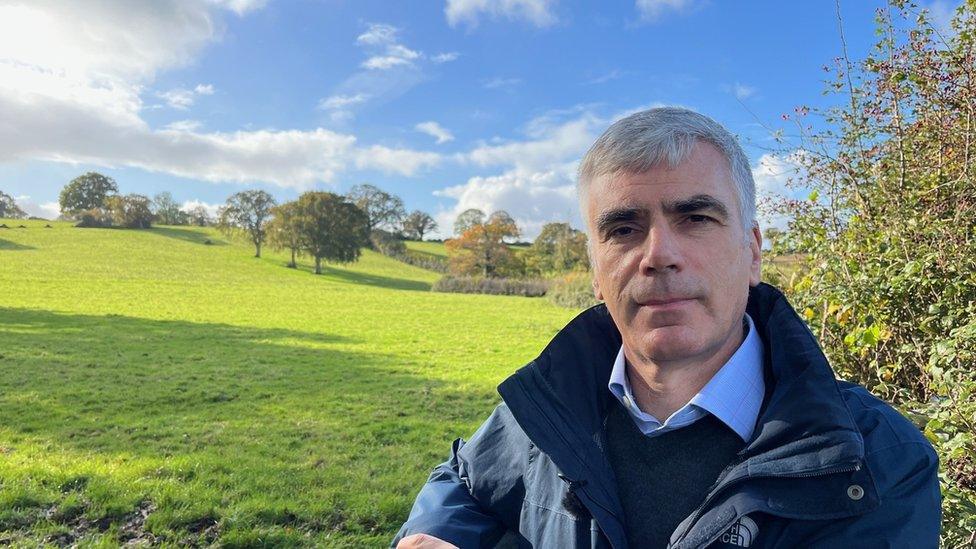
Paul Jefferson campaigned against a large solar farm which will be built on fields at Marsh Green near Exeter
A massive solar farm site will be built in the Devon countryside following a planning battle.
The 60,000-solar panel site near Exeter was refused planning permission by East Devon District Council in December.
But developers Taiyo appealed against the decision and the planning inspector approved the plans.
Taiyo said the site at Marsh Green would provide energy for up to 18,500 homes but campaigners said they were "dismayed" at the decision.
Paul Jefferson, chairman of Marsh Green Valley Protection Group, said: "We are obviously disappointed but not surprised.
"The inspector accepted our points around harm to the local landscape and heritage but has decided that the benefits outweigh the harm."
Campaigners raised funds to pay for a barrister to fight their case at the planning appeal.
Mr Jefferson said he was proud of the campaign that the local community pursued.
Penny Mills, director of the Devon Campaign for the Protection of Rural England, said: "The people of Marsh Green did a fantastic job.
"They did a lot of research, put up a strong case, spent around £15,000 on a barrister and other experts.
"They really couldn't have done any more but sadly it's made no difference."
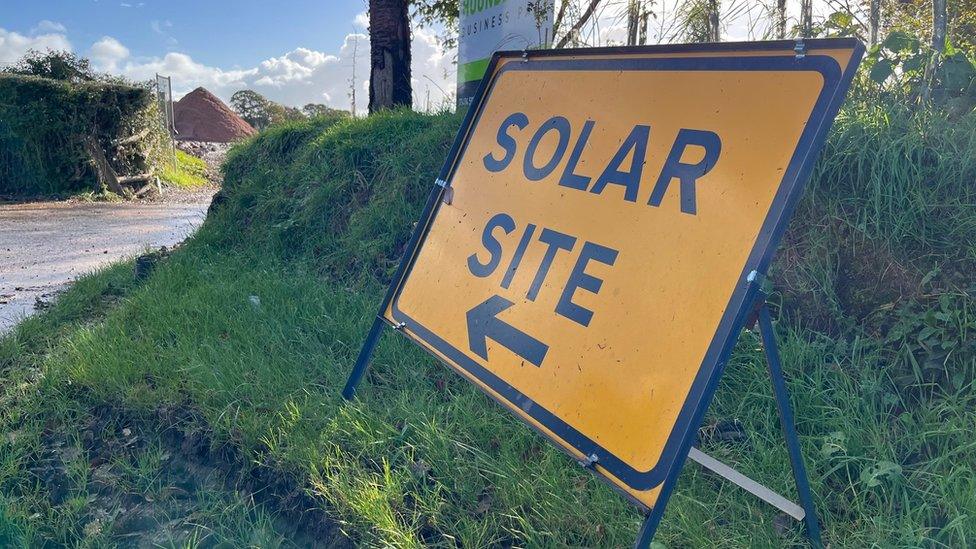
Another solar farm site is currently under construction on the edge of Marsh Green
Campaigners pointed to an existing solar farm nearby and another currently under construction on the edge of the village as further reasons to deny planning permission.
Ms Mills said: "How many solar farms in Devon will there be? And it's not just Devon. This is happening right across the country."
The solar panels will take up 29 hectares of the 74-hectare site and produce 30MW of renewable electricity.
The developers behind the solar farm said the project would "deliver a key solar and green infrastructure facility that will further the climate goals of East Devon and the wider region".
Simon Crowe, director at Taiyo, said the scheme, named Ford Oaks, would also "significantly enhance the local area's biodiversity and nature" through creating new wetland habitats, flood mitigation measures and new grazing land for livestock.
The developers claimed the reduction in C02 emissions due to the amount of renewable energy created at the site would be "the same as eliminating 1,600 petrol cars off Devon's roads for a year".
Work is due to start on the site in 2024.

Follow BBC News South West on X (formerly Twitter), external, Facebook, external and Instagram, external. Send your story ideas to spotlight@bbc.co.uk, external
Related topics
- Published27 July 2023
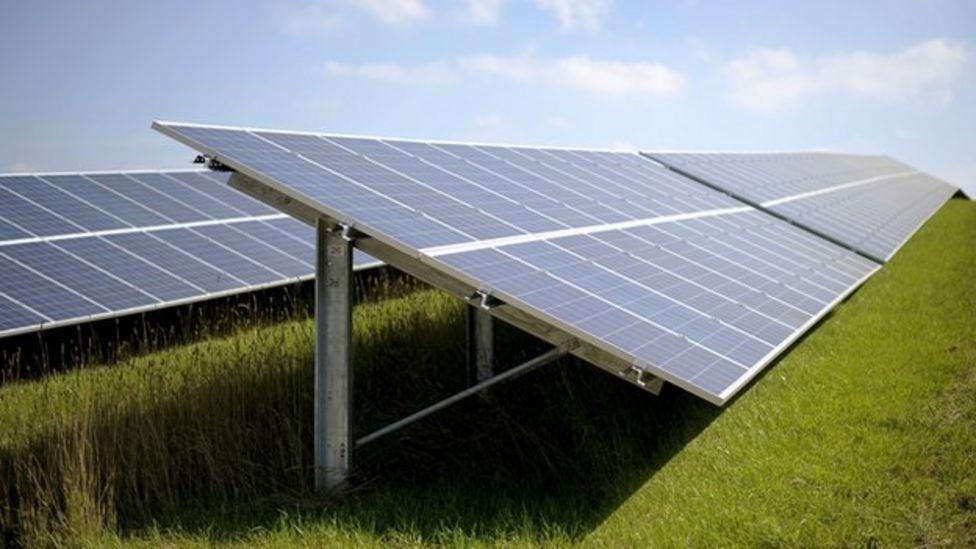
- Published20 July 2023
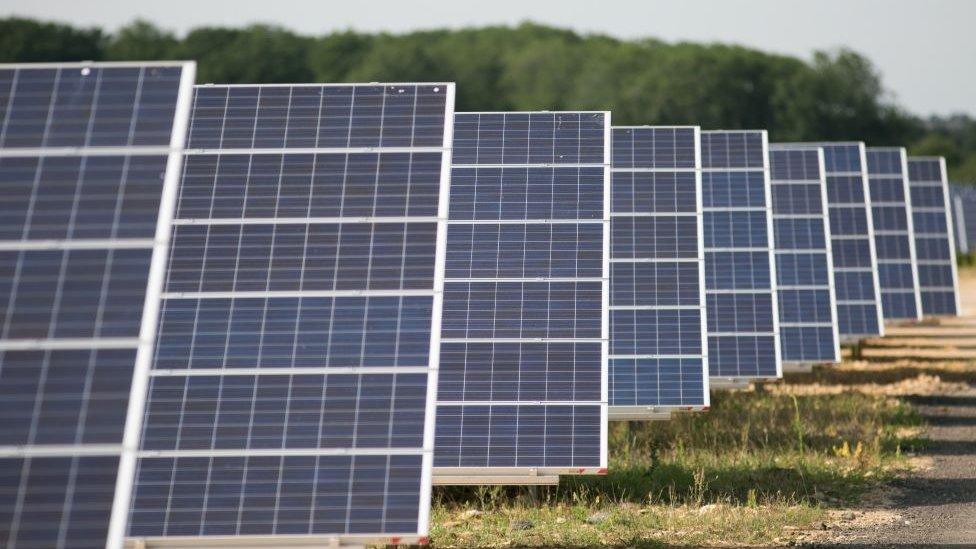
- Published10 June 2023
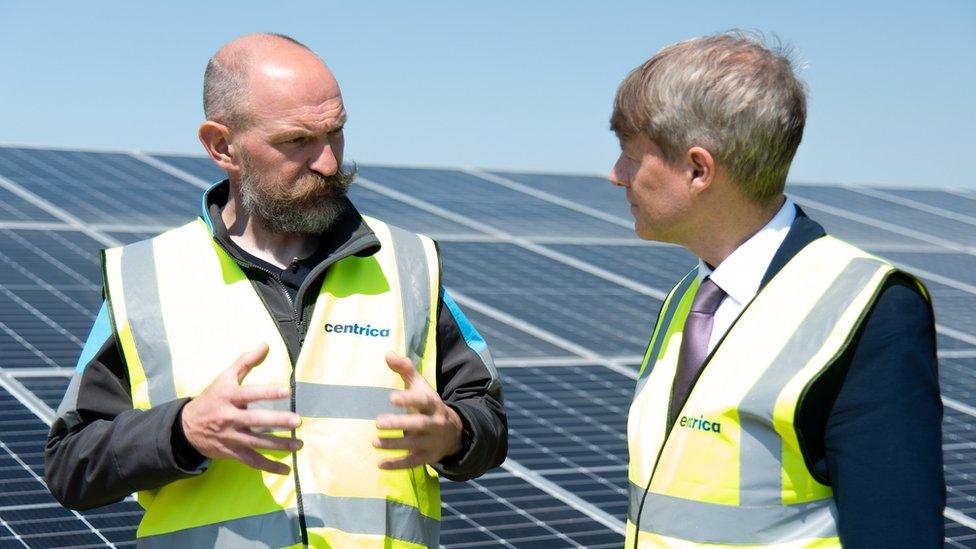
- Published6 April 2023
